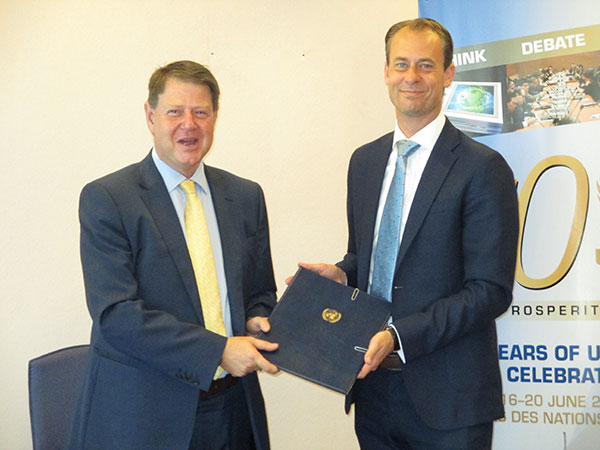
Our Projects are
Transforming African Trade
Quick Contacts
2nd Floor, Fidelity Insurance Centre Waiyaki Way, Westlands
Geneva – July 1st, 2015 – The United Nations Conference on Trade and Development and TradeMark Africa have signed an MOU which is aimed at boosting trade in East Africa through collaboration on Trade and Gender, Trade Facilitation, including Customs automation and trade portals and improving port infrastructure.

Speaking during the contribution agreement signing ceremony in Geneva, the Deputy Secretary General for UNCTAD Joakim Reiter said:
“UNCTAD is excited about this new partnership with TradeMark Africa. This partnership reinforces UNCTAD capacity to assist East Africa in the implementation of trade enhancing reforms”.
Speaking at the signing ceremony, TradeMark CEO Frank Matsaert noted that trade infrastructure is critical to East Africa’s prosperity, and in creating the much needed jobs in the region. Currently East Africa’s trade corridors are characterised by long transit times and high costs. Freight costs per kilometre are more than 50% higher than costs in the United States and Europe, and for the landlocked countries, transport costs can be as high as 45% of the value of exports.
“We are delighted to enter into a MoU with UNCTAD which provides a platform for cooperation between our two organisations. This will help us work together with our partners in the EAC in a more coordinated way in such areas as implementing the Bali TFA and women in trade,” He said.
Cooperation on the above mentioned areas will include:
Source: TradeMark Africa (TMA)
TradeMark Africa (TMA) is an aid-for-trade organisation that was established with the aim of growing prosperity in East Africa through increased trade. TradeMark Africa (TMA) operates on a not-for-profit basis and is funded by the development agencies of the following countries: Belgium, Canada, Denmark, Finland, the Netherlands, UK, and USA. TradeMark Africa (TMA) works closely with East African Community (EAC) institutions, national governments, the private sector and civil society organisations.
Disclaimer: The views and opinions expressed in this article are those of the authors and do not necessarily reflect the official policy or position of TradeMark Africa.